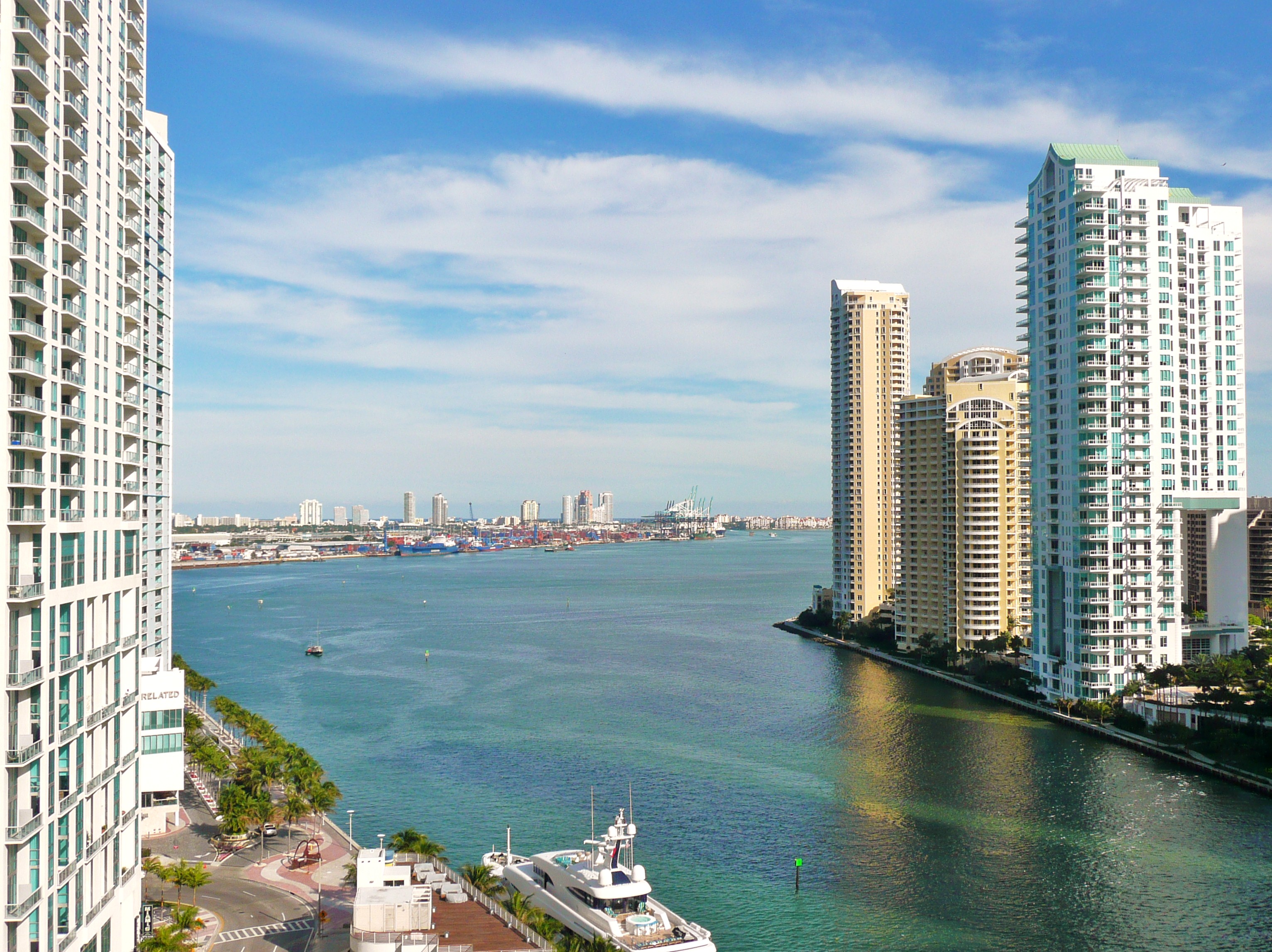Florida is known for its beaches, sunshine, and major vacation attractions. Whether you’re a visitor or a resident, Florida has much to offer and more to enjoy.
But have you ever thought about the tap water while enjoying your vacation or living in the sunshine state? As test results emerge, the overall safety of Florida’s tap water is being called into question.
- Safety Concerns
- Yellow Tap Water?
- Florida Tap Water Tastes Bad
- Groundwater Contamination
- Type of Contaminants Found in the Tap Water
- Contaminants Above the Legal Limit
- Water Well Arsenic
- Benefits and Risks of Popular Disinfectants
- Tap Water Quality Throughout the State
- Can I Boil the Water To Remove the Contaminants?
- Should I Just Drink Bottled Water?
- Benefits of Water Filtration Systems
- Is Florida Tap Water Safe To Drink?
Safety Concerns

Is Florida’s tap water safe to drink? The answer may startle you. Like all states, Florida officials do follow federal guidelines regarding water quality. Overall, that makes the water safe to drink.
However, Florida’s water contains several contaminants above the standard federal guidelines that could, if left unchecked, be dangerous to your health.
Yellow Tap Water?
If you’ve ever been to Florida, you may have noticed that the water tends to be on the yellow side. Why? Usually, this is the result of several contaminants from organic materials. You may be hesitant, but the yellow water is usually safe to drink.
Although, you may want to grab bottled water anyway because clear is better than yellow.
Florida Tap Water Tastes Bad

Along with the yellow color, many Floridians will tell you that tap water tastes and smells bad. Unfortunately, this is mainly due to the number of contaminants. Contaminants like copper, metals, and sulfur affect not only the quality of the water but the taste.
Groundwater Contamination
Most Floridians (90%) drink tap water from groundwater aquifers. Although this is usually safer than surface water, the geological design of Florida makes it more vulnerable to certain contaminants, such as:
- sparse soil
- high porous limestone
- high water table
These contaminants, along with Florida’s frequent rainfall and exposure to high pollutants, can create a situation that makes tap water unsafe.
Type of Contaminants Found in the Tap Water

Unlike many other states, Florida has a unique set of problems with the quality of its tap water due to the geological composure of the state. Much of Florida is like a tropical island, and the rainforest type of environment makes it difficult to maintain a quality water supply.
The contaminants found in the water come from pesticide runoff, toxic algae blooms, and leaking septic tanks.
Contaminants Above the Legal Limit
In a recent test (2019) to determine water quality in Florida, the Environmental Working Group (EWG) found 5 contaminants, including Thallium, Uranium, and Radium, in the state’s tap water. All five were above the legal limits designated by the EPA.
According to the EWG, this means Florida failed to ensure the removal of these harmful contaminants. In other words, the tap water was not as safe to drink as one may assume.
While that may not cause alarm for many, it may pose a significant risk to those who suffer from autoimmune disorders, sensitivity to certain chemicals, infants, small children, and the elderly.
Water Well Arsenic
In the past several years, arsenic was another dangerous contaminant discovered in Florida’s tap water. The Florida Department of Health found that one-third of their well water samples contained high levels of arsenic.
As time goes on and it is left untreated, arsenic poisoning is dangerous and can cause serious health issues. A few of these include skin lesions, cancer, and cardiovascular disease. The good news is that Floridians can use basic tap water filters to reduce their exposure to arsenic.
Benefits and Risks of Popular Disinfectants
Before it reaches the public, certain chemicals are added to tap water treatment to disinfect it from contaminants. The most frequently used chemicals are chlorine and chloramine, also the most productive.
Chlorine is used in swimming pools to disinfect. However, most of us have been told as children not to drink the water in the swimming pool. That’s because there’s a high level of chlorine used to disinfect it.
Although a much smaller amount is used to disinfect tap water, there is always a risk in using these disinfectants. The major risk is that some people may be more sensitive to these disinfectants and after years of exposure, they may be more prone to developing certain cancers.
Fluoride is another disinfectant used in tap water. You may be familiar with this disinfectant– it’s used in toothpaste. However, studies have found that using fluoride over a long period of time can cause nerve cell damage and even brain damage in some people.
The good news is that the benefits of using these common disinfectants seem to outweigh the risk. Adding chlorine, chloramine, and fluoride to drinking water cleanses the water and prevents serious health issues. Those with sensitivities to these chemicals may want to consider other alternatives, such as drinking bottled water.
Tap Water Quality Throughout the State

Here is a breakdown of the water quality in major cities in Florida. These studies have been based on an EWG report and show significant issues in Florida’s tap water.
Miami
Miami’s tap water was found to have 8 contaminants that exceeded the state’s guidelines. However, tap water is in compliance with federal standards. Arsenic is a big problem in Miami’s tap water.
Jacksonville
Out of 34 contaminants found in Jacksonville, 13 were in excess of the state health guidelines. Jacksonville’s water is still considered safe according to federal guidelines. High levels of arsenic and trihalomethanes were also discovered.
Tampa
6 contaminants exceeded the state’s health guidelines in Tampa. But again, tap water is considered safe according to the federal guidelines. As with Miami and Jacksonville, Tampa also had high levels of arsenic in its tap water.
Orlando
In Orlando, five contaminants were in excess of the state’s health guidelines, but the tap water was, again, found compliant with the federal guidelines. Orlando also had high levels of trihalomethanes and twice the amount of hexavalent chromium in its tap water.
Can I Boil the Water To Remove the Contaminants?
You may have heard that boiling water will remove all the contaminants in tap water. The origin of this idea is unknown, but perhaps it originated from the thought that heat kills germs. While that is true, chemicals and contaminants are not the same and do not work the same way as germs. To be very clear: boiling water does not remove contaminants. Don’t waste your time boiling water unless you’re cooking.
It doesn’t help clean the water or remove contaminants. It will cause chlorine and chloramine to evaporate, which is not a good idea since these two ingredients remove the contaminants.
In short, boiling your tap water will only cause more trouble.
Should I Just Drink Bottled Water?
Good question. If you don’t like the look of the slightly yellow tap water – yes, drink bottled water. If you don’t like the taste of tap water – yes, drink bottled water. Drinking bottled water does reduce the health risk from contaminants.
Another solution is to invest in a water filter system. Since you’ll have to keep buying bottled water, investing in a water filter system would be cheaper in the long run. It’s far more practical to cook food with water, wash dishes, give your pet water, and just grab a drink of water from your faucet.
Benefits of Water Filtration Systems

As discussed, water filtration systems may provide the safest water with no underlying health risks and no bad taste. The ultraviolet (UV) systems disinfect water and kill parasites, chemicals, and bacteria that survive chlorine treatment.
You don’t have to worry about taste, odor, or residue when using filtered water. You also don’t have to worry about constantly spending money on bottled water. Once you have the water filtration system in place – that’s it. No more spending is needed.
And not only will your water taste better, but your food, coffee, and tea will too. And after taking a bath or shower, your skin will feel much smoother.
Another benefit of UV water filtration is salt-free water softeners. Hard water contains a high dose of minerals like calcium and magnesium. The salt-free softeners eliminate high levels of calcium and magnesium by turning the hard water into what’s known as soft water.
The softeners don’t completely remove calcium and magnesium since these minerals are beneficial for the body, but they do remove high levels of the minerals. One last benefit of these salt-free water softeners is that they improve your plumbing and yards. No more ugly build-up or residue in your pipes. And when you water your garden or yard, you’ll notice the difference.
Is Florida Tap Water Safe To Drink?
The answer is yes. According to federal guidelines, tap water in Florida is safe, even though the state’s water shows elevated levels of certain contaminants.
If you don’t feel comfortable drinking the tap water, don’t boil it. A simple solution is to either invest in a water filtration system or purchase bottled water.





